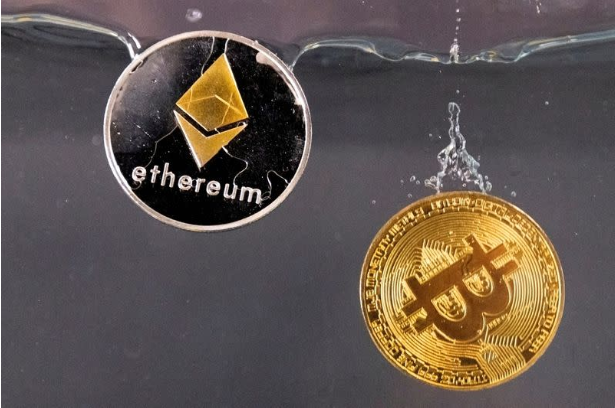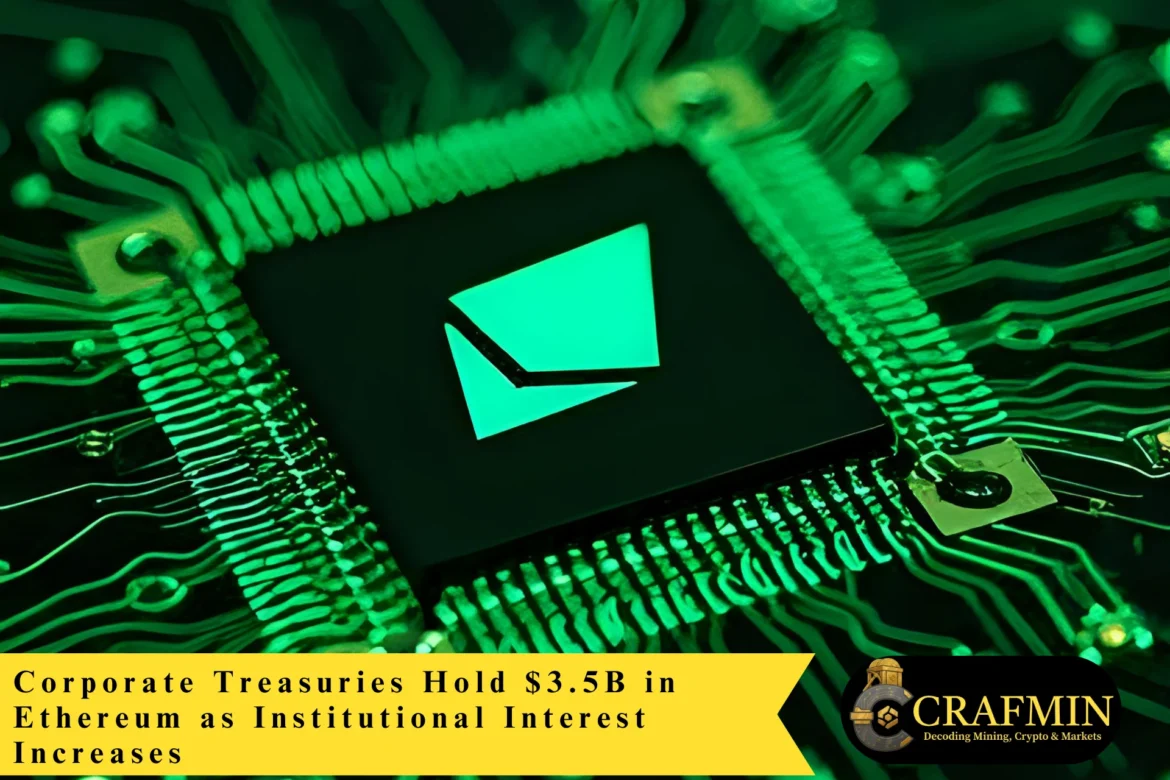Ethereum is rapidly climbing the corporate investment priority list. Listed small-to-mid-cap companies are now holding a combined total of 966,304 ETH worth about $3.5 billion. That is a 730% increase over the same time last year — an enormous number that signifies a clear sea change in how companies are considering digital assets.
For more and more businesses, ETH is no longer a speculative crypto bet — it’s increasingly becoming a strategic investment, alongside cash, bonds, and other dashing assets. The caveat? ETH not only provides returns but also a peek into what’s new and next in financial technology.
Back in April, only 3% of all ETH was held in ETFs or company treasuries. Now it’s almost 8%.
That’s 31.9 billion dollars locked up. It’s double what it was a month ago, with @BlackRock, @Fidelity and others piling in.
Feels like Ethereum is having its own Bitcoin-style… pic.twitter.com/P42EfTdASw
— BlockchainedIndia (@blockchainedind) August 13, 2025
Why Ethereum Is Finding a Place on Corporate Balance Sheets
The appeal isn’t difficult to see since staking rewards — previously in the 3–4% range each year — provide businesses with a reliable stream of passive income. That’s a pretty sweet deal in today’s wacky interest rate environment, where government bonds and savings accounts generally pay less.
But ETH has a bigger mission than that of a source of yield. It’s the fuel of the decentralised finance (DeFi) economy, transactional fuel for non-fungible token (NFT) markets, and a platform upon which to tokenise real-world assets. Remove ETH, and the Web3 universe, growing by bounds and leaps, would not be there.
Some CFOs now view Ethereum as “digital oil” — infrastructure, not a speculation wager.
Market Responses: Stocks Riding the Wave of Ethereum
The impact of such treasury disclosures appears to be not just on the blockchain. When companies announce Ethereum purchases, share prices respond well.
Take BitMine, for example, its share price has gone up 3,679% since it went public with its holdings of ETH. Similarly, GameSquare has seen the share price increase 1,260% following its announcement that it had purchased Ethereum into its reserves.
These gains are unlikely to be a sign that investors are rewarding businesses that are disruptive, future-oriented moves in the digital asset space. It’s also generating wider financial world debate about whether Ethereum is well on its way to becoming a corporate mainstream asset.
Stocks Jump as Companies Reveal Ethereum Holdings ( Image Source: Yahoo Finance )
Timing the Move into Ethereum
For companies entering ETH at present, there is FOMO. Ethereum’s network is in the process of implementing make-or-break upgrades like proto-danksharding and layer-2 scaling upgrades. These will boost the scalability and reduce the cost of the network — aspects that would trigger adoption and thereby demand for ETH.
To own ETH today is less about being on a hype train than it is to owning a stake in an expanding virtual economy. Early supporters can look forward not only to the potential for price appreciation, but also to being part of new industries such as digital payments, supply chain tracking, and decentralized applications.
From Fringe Asset to Boardroom Staple
Not too many years back, proposing crypto on a boardroom table would have earned a person an eyebrow lift. Now, Ethereum is almost ready to get placed on those tables as an asset class.
Businesses are weighing some of the advantages:
- Consistent revenue through staking protocols.
- Very liquid, with ETH being easily convertible into cash at the opportune time.
- Clean exposure to Web3 growth trends, from lending platforms to metaverses.
Even more blue-chip companies are stirring and sitting up, especially as regulators in certain jurisdictions provide more guidance on how to treat and report on crypto assets. That guidance is lowering the bar for listed companies to enter blockchain assets without scaring off shareholders.
Also Read: Zodia Markets Secures $18.25M to Develop Stablecoin Settlement Infrastructure
The Supply Squeeze Effect
The rising presence of ETH in the vaults of companies could have spillover effects for the market. Every ETH that gets stored in a company’s cache is one that isn’t available in circulation or use in DeFi. That reduced liquidity could drive prices up if demand continues to increase.
Staking adds a second variable — tokens in staking contracts are, in effect, removed from circulation, and that further limits supply. To long-term investors, that makes Ethereum an increasingly scarce and valuable asset.
Ethereum’s Special Role in Corporate Crypto Strategy
While Bitcoin may have opened the door to corporate finance, ETH is building a niche that is differentiated from it. Its use-case-oriented ecosystem is making it into something greater than a mere store of value — it’s an innovation enabler.
Progressive businesses will soon be able to look forward to having ETH as part of their treasury reserves, in addition to their fiat reserves, commodities, and even carbon credits. This would essentially shift the balance sheet composition and expose shareholders to one of the world’s fastest-growing segments of the economy.
CATHIE WOOD IS ALL IN ON ETH
On CoinDesk today, Cathie Wood laid out why Ethereum is becoming the institutional protocol:
– Coinbase L2 = Ethereum
– Robinhood L2 = Ethereum
– Stablecoin boom is mostly happening on Ethereum
– $ETH treasuries offer utility and staking unlike… pic.twitter.com/RK2Idb43Od— Crypto-Gucci.eth ᵍᵐ (@CryptoGucci) August 12, 2025
The Road Ahead
The message is clear and out loud: ETH is no longer a technological experiment or a trading toy. It is fast becoming a mass market financial instrument that comes across as being at ease midway between traditional assets and the digital frontier.
For companies, having ETH on the balance sheet of the treasury is more and more being seen as a badge of honor for being ahead of the curve. For investors, it’s a way of investing in companies looking ahead to the course of the future world economy.
If the rate of growth is sustained, corporate ETH reserves can be a badge of honor of finance’s future — one in which blockchain is not only a component, but part of the present.

